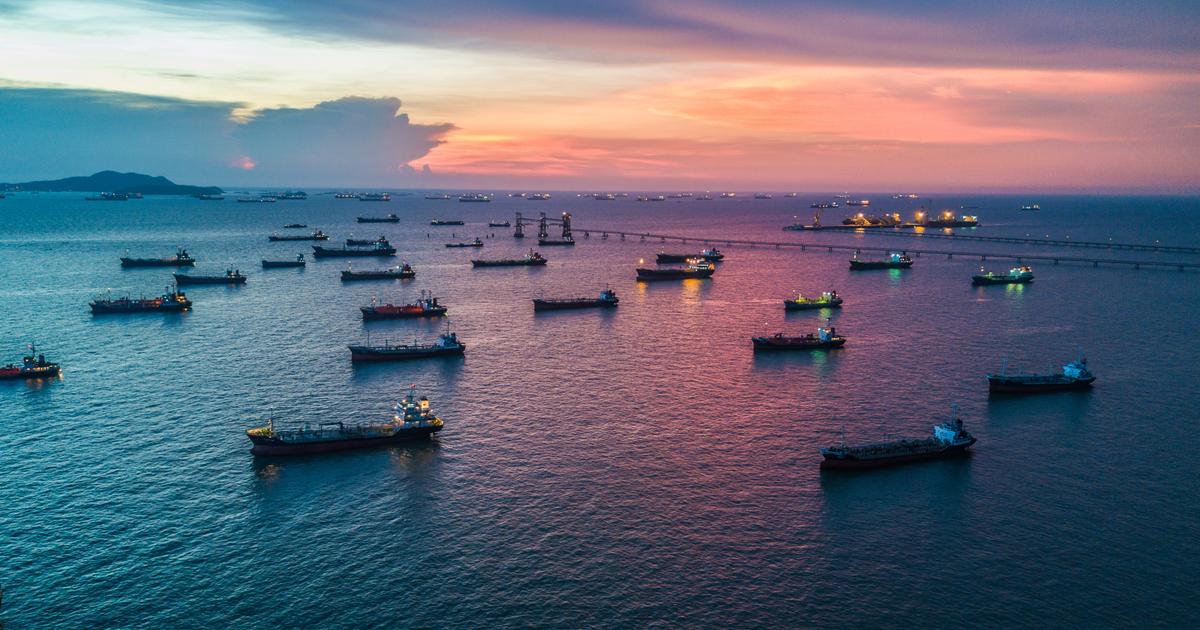EU member states on Monday approved a mechanism to cap wholesale gas prices as soon as they exceed 180 euros/MWh for three consecutive days, according to a statement from the European Council.
This capping mechanism, adopted by the Twenty-Seven after several weeks of tough discussions, will only be activated at a price level at least 35 euros higher than the average international price of liquefied natural gas (LNG), specifies the communicated.
An agreement “that will protect citizens from soaring energy prices”
European Energy Ministers, meeting in Brussels, "have reached an important agreement which will protect citizens from soaring energy prices, with a realistic and effective mechanism, which includes the necessary guarantees for the security of the supply and stability of financial markets," said Czech Minister Jozef Sikela, whose country holds the rotating EU presidency.
The Ministers of the Twenty-Seven had already agreed on December 13 on certain terms of the mechanism, which will apply to futures contracts on the gas markets, but they still had to agree on the price where the cap will engage.
The European Commission had initially proposed to cap monthly contracts on the TTF reference market once they exceeded 275 euros/MWh for two consecutive weeks, among other conditions - factors never met, even at the height of the price surge. last August.
Fear of endangering European supplies?
After tearing each other apart over this proposal, the Member States finally agreed on a very low threshold, which will have to be reached during a significantly reduced period.
The contract for delivery in one month was traded Monday on the TTF around 110 euros/MWh.
The TTF, a Dutch platform, is the de facto gas exchange of the EU and its price serves as the benchmark for the bulk of gas transactions on the continent.
Several States (Spain, Poland, Greece, Italy, etc.) had called for a clear relaxation of the conditions for activating the mechanism.
On the contrary, reluctant to intervene, other states (Germany, the Netherlands, Austria, etc.) demanded drastic “safeguards” to prevent a ceiling from threatening European supplies.
The risk being that the suppliers of liquefied natural gas (LNG) abandon Europe in favor of Asian customers paying for their gas at more attractive prices.
To remedy this, the States have agreed to activate the cap only with a price higher than the international price of LNG and to provide for automatic deactivation in the event of unforeseen disruptions.
Two other emergency texts adopted
The agreement reached allows the States to formally adopt two other emergency texts intended to cushion the impact of the energy crisis.
The first provides for group purchases of gas, in which consortia of companies would participate, in order to obtain better prices together, and a solidarity mechanism automatically ensuring the energy supply of countries threatened with shortages.
The second simplifies the authorization procedures for renewable energy infrastructures.
Economy
Energy: All you need to know about the "electricity buffer" set up by the State for VSEs and SMEs in 2023
Economy
Energy: Faced with nuclear shortages, EDF asked to unleash dams and wind turbines
World
Gas
gas prices
War in Ukraine
Energy






